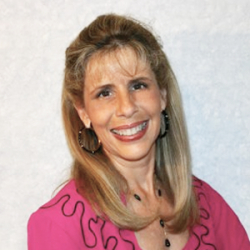As a writing late bloomer (I started writing professionally at age 45), it never ceases to amaze me how many people think they can just jump in and write a book without doing their homework. I spent three years researching, writing articles, attending writing conferences and consuming every industry how-to I could get my hands on before wading into the book publication waters, and then it was with fear and trembling.
I started small (articles and submitting short pieces to compilations and devotionals) and worked my way up to books. And I always followed the advice of successful authors (which you can easily find if you just seek) and invested in good editors before submitting my manuscript to agents or publishing house editors.
At the writing mini-workshop I taught over the weekend (one of dozens I’ve taught at bookstores and libraries), I spoke with several authors of self-published books who hadn’t bothered to have their manuscripts professionally edited before turning them over for printing. Unfortunately, this lack of preparation inevitably shows in the quality of the writing, and reflects poorly on self-published books in general.
One of the authors didn’t even know his book was self-published because “it was accepted by a publisher,” until I asked, “Well, did they require money to print your book?”
“Only three thousand dollars,” was his reply.
I wanted to say, “Good heavens! For three thousand dollars, shouldn’t you take enough pride in your work to have it edited properly?” I really don’t understand.
I’m not just talking grammar and punctuation here. I’m talking 16 pages of throat-clearing introduction before beginning the first chapter. Or not even pre-plotting out major events in a “fictional novel” (a HUGE redundant no-no as a book is referred to as either a novel or fiction, not both), or using real names and real events without asking permission.
When I first delved into books and faced my 9th traditional press rejection for The Distant Shore, I thought about self-publishing. I recall the advice of published authors to exhaust all possibilities in traditional publishing first because of the stigma attached to self-publishing. Sub-quality editing was the difference, they said. I didn’t fully grasp their meaning at the time, and thankfully, my manuscript was finally accepted by a small press who provided its own editing in addition to the professional editing I had already procured, which produced a quite acceptable end product (in my humble opinion).
But I get it now.
After wading through beginner model book manuscripts from people who just decide to sit down and whip out the memoir or novel they’ve always dreamed of without a lick of preparation, I do indeed get it now.

